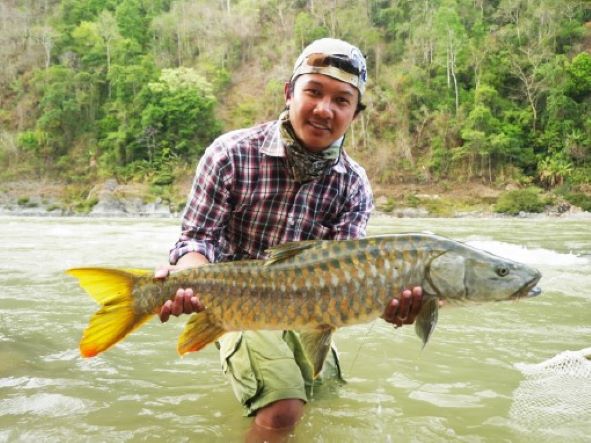Climate change and freshwater fish biodiversity in Bhutan
Standardized monitoring of a Flagship Species, Golden Mahseer (Cyprinidae: Tor putitora)
Keywords:
GIS, Gross National Hapiness, management, species delimitation, umbrella speciesAbstract
Climate change is now the most influential driver of ecosystem change, with critical impacts on freshwater systems as a substantial result. These have rapidly pushed numerous fish species towards extinction, much more so than in any other group. Conservation planning has been largely ineffective, due to limited data on global fish distributions/movements. These are slowly emerging in Bhutan, but effective data collection programs are hindered by both economy and topography. Given this, how can the conservation of Bhutanese aquatic systems be effectively promoted? Here we outline a time-tiered strategy that: (a) Uses existing albeit imperfect data to generates a predictive fish species distribution model (SDM); (b) Suggests a standardized long-term monitoring program be used to collect additional data; and (c) Anticipates future climate impacts by formulates proactive aquatic management strategies. We demonstrate this approach using Golden Mahseer (Tor putitora), a fish of great cultural importance in Bhutan but also one with a conservation focus as both a ‘flagship’ and ‘umbrella’ species (whose protection also benefits other species). We first identify favorable environmental parameters for Golden Mahseer by integrating historic and contemporary records with life-history characteristics. The probabilities of favorable habitats (≤1,000m elevation) were identified within Bhutan by first parsing GIS databases then superimposing those data onto a map of the seven major river drainages. In conclusion, our predictive map is but a starting point as SDMs must be validated and improved through acquisition of additional data. We thus recommend Golden Mahseer as the focal species in the development of a standardized, long-term monitoring program for Bhutan. Its status as a flagship/umbrella species would also promote opportunities to similarly quantify the distributions of other native fishes– both must immediately occur to successfully mitigate the impacts of climate change on Bhutan's aquatic ecosystems

Downloads
Published
License
Copyright (c) 2022 Bhutan Journal of Animal Science

This work is licensed under a Creative Commons Attribution 4.0 International License.





